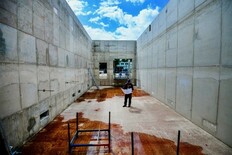- Shell's 100-megawatt REFHYNE II electrolyser will produce 44,000 kg/day of renewable hydrogen by 2027.
- The project is supported by EU policies and German regulatory frameworks.
- Funding comes from the EU's Horizon 2020 research and innovation programme.
- REFHYNE II follows the 10-megawatt REFHYNE I, operational since 2021.

Project Overview
Shell Deutschland GmbH has approved the Final Investment Decision (FID) for REFHYNE II, a 100-megawatt renewable proton-exchange membrane (PEM) hydrogen electrolyser at the Shell Energy and Chemicals Park Rheinland in Germany. Scheduled to begin operations in 2027, the electrolyser will produce up to 44,000 kilograms per day of renewable hydrogen to help decarbonize site operations.
Support and Funding
The REFHYNE II project is backed by supportive policies, including the European Union’s binding targets for renewable hydrogen use and the German Federal Government’s regulatory framework. Additionally, the project has received funding from the EU’s Horizon 2020 research and innovation programme.
Operational Benefits
Renewable hydrogen from REFHYNE II will be utilized at the Shell Energy and Chemicals Park to produce energy products with lower carbon intensity, such as transport fuels. This will contribute to reducing Scope 1 and 2 emissions at the facility. In the future, the renewable hydrogen could also be supplied to lower industrial emissions in the region as customer demand evolves.
Experience and Development
The project will leverage the experience of Shell and its partners, ITM and Linde, in developing, constructing, and operating renewable hydrogen projects in Europe. REFHYNE II builds on the success of the 10-megawatt PEM electrolyser REFHYNE I, which has been operational since 2021. Preparations for REFHYNE II have included detailed engineering plans, on-site groundworks, and connections to existing infrastructure.

